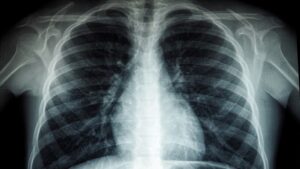[ad_1]
WHAT IS TONSILIC INHALATION (ACUTE TONSILITH)?
Tonsils, also called tonsils, are organs with important functions located on both sides of the throat at the back of the tongue. By catching harmful microbes that enter the body, they produce cells that help the body fight microbes. These cells either directly kill the microbes themselves or they produce some substances that allow the microbes to be killed.
Some microbes that enter the body cannot be destroyed despite this effect of the tonsils and they multiply in the tonsils and cause inflammation of the tonsils. They cause enlargement, redness, and sometimes inflammation on the tonsils. This condition is called tonsillitis (tonsillitis).
Tonsillitis is one of the most common diseases in children, it is most common between the ages of 5-15 and in the winter-spring period.
Microbes that cause acute tonsillitis can be transmitted from person to person through body fluids such as saliva, nasal and throat fluids, close contact, and airborne droplets from the respiratory tract.
WHAT ARE THE SYMPTOMS OF ACUTE TONSILLITIS?
The severity of the disease can vary depending on the strength of the microbe and the body resistance of the person. In tonsillitis, all or more of the following symptoms can be found;
– Fever (can reach 39-40 degrees), chills, chills
– Tonsils are swollen and red,
– Earache
– Throat ache
– Difficulty in swallowing, pain or discomfort,
– Weakness, malaise, widespread pain in the body, joint pain
– Swelling, tenderness, pain in the lymph nodes in the neck
– Headache
– Loss of appetite
– Bad breath
– Sound changes.
In children, they also:
– Nausea
– vomiting
– Abdominal pain may accompany.
HOW IS TONSILITIS TREATED?
The recovery phase of acute tonsil infections lasts around 1 week. After the start of treatment with the drug, fever and pain may persist for 3-4 days.
Antibiotics, pain relievers and antipyretic drugs, throat relief lozenges and vitamin C supplements are given to strengthen the immune system in bacterial infection treatments.
Although the drugs given to adults and children in viral infections vary, painkillers and antipyretics, vitamins and minerals that support the immune system, lozenges are used to relieve the pain in the throat. In more severe cases, serum can be given.
If an adult or child has had tonsil infections 7 times in a year or 5 times a year for 3 years, it can be decided to have a tonsil operation.
Acute attacks of chronic tonsillitis can be corrected with drug treatments, but frequent exposure may lead to disruption of other mechanisms in the body.
Especially chronic tonsillitis caused by streptococcal bacteria can cause another chronic disease called acute rheumatic fever.
Acute rheumatic fever is a disease that damages the heart and heart valves and can cause kidney failure. In order to prevent all these diseases, tonsil operation should be performed in order to increase the general quality of life of the patient.
In addition, tonsils can be removed in the case of fever of unknown origin, which is usually seen in children. The cause of high fever is thought to be tonsils. There is no problem in the tonsils as a finding, but in various tests performed on the child, values such as CRP are high.
Sometimes tonsils become excessively enlarged due to tonsil infection. The patient also does not have difficulty in swallowing or fever, but it can block the patient’s airway. This condition is called kissing tonsils. Kissing tonsils triggers adult and child apnea. The patient cannot sleep quality sleep and their snoring is increasing. In such cases, it may be necessary to remove the tonsils again.
Follow NTV on social media
[ad_2]
Source link






